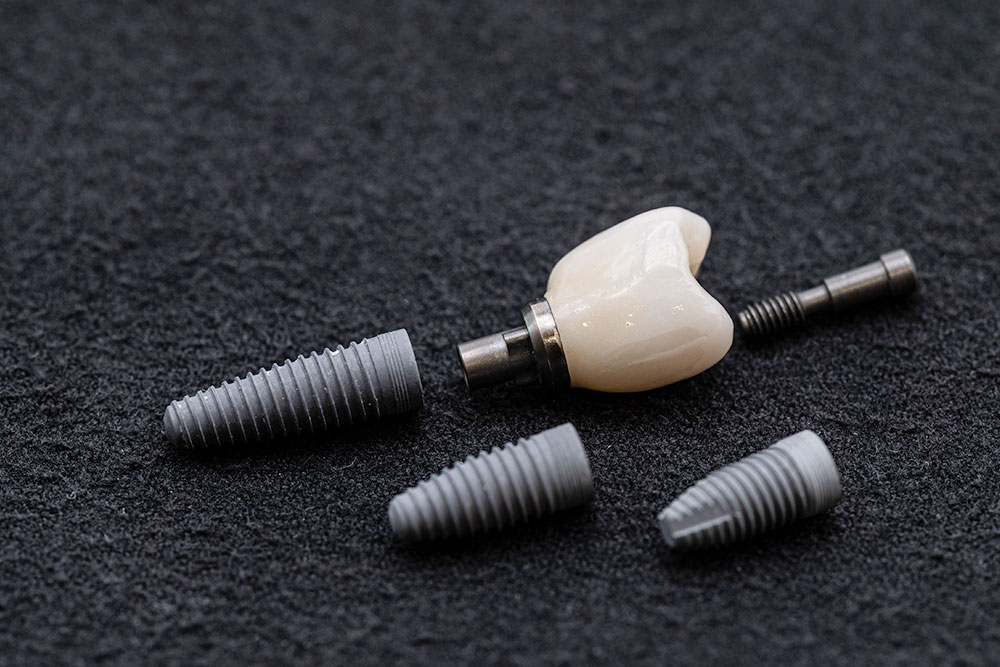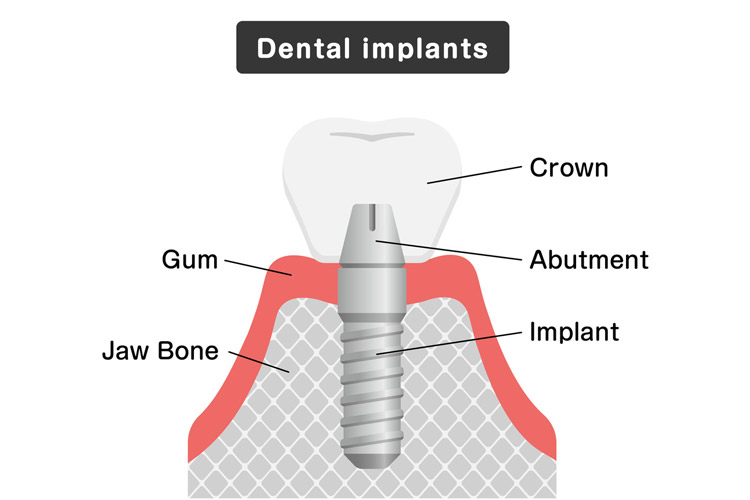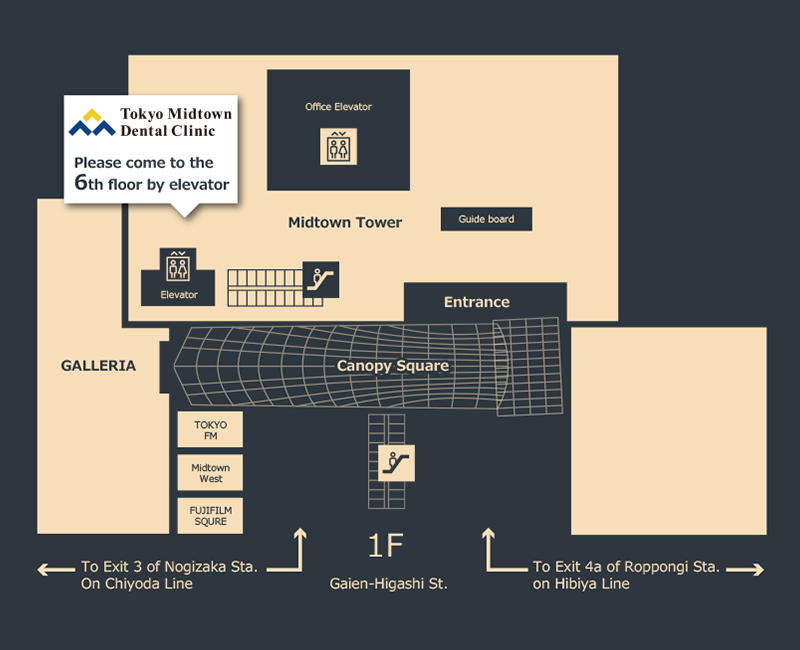
What is implant treatment?
An implant in dental practice is an artificial tooth root that is implanted in the jawbone (i.e., alveolar bone) that supports the teeth.
Implant therapy, like dentures and bridges, can be a complementary treatment for missing teeth.
The Structure of Implants
Implants can be broadly divided into three categories: superstructures (artificial teeth and crowns), which are equivalent to teeth, fixtures (implant bodies and artificial dental root ), which are implanted in the bone, and abutments, which connect the superstructure to the implant body.
The materials used are ceramic or resin (plastic) or hybrid ceramic (a combination of ceramic and resin) for the superstructure, titanium or titanium alloy for the fixture, and titanium, titanium alloy or zirconia for the abutment, respectively.
There are two ways to fix the implant to the bone: screw fixation, where the superstructure and abutment are secured with screws, and cement fixation, where cement is used like glue to secure the superstructure and abutment. Our doctor analyzes your needs and selects the fixation method that best suits each of your needs.
The advantages and disadvantages of implant treatment
Advantages
Implants can firmly fix your artificial dental root and provide a chewing experience similar to that of your natural teeth. They are also aesthetically pleasing.
Disadvantages
The treatment period is longer and the cost of treatment is higher than other treatments. In addition, compared to natural teeth, they are more susceptible to infection. So, regular maintenance including periodontal disease prevention is required.
Also, requiring surgery, implant treatment may not be possible for people with poor physical condition, if you have systemic disease for instance.
If there is a shortage of bone to fill the implant, it may be done by grafting or replacing the bone.
Implant surgery
Implants surgery may be performed in a single procedure or in two separate procedures, but at Tokyo Midtown Dental Clinic, we basically split the procedure into two sessions.
To alleviate fear and pain during surgery, we can provide pain control with local anesthesia as well as intravenous sedation, which allows you to feel like you are asleep. We can also prescribe analgesics for post-operative pain.
Maintenance after implant treatment
After implant treatment, peri-implantitis is one of the most important things to note.
If the disease is severe, as is the case with periodontal disease, it can dissolve the bone, which can lead to the loss of implants placed.
To avoid implant loss, it is important to keep up with daily plaque control and regular follow-up and maintenance.
Click here to “Features of our implant treatment”


